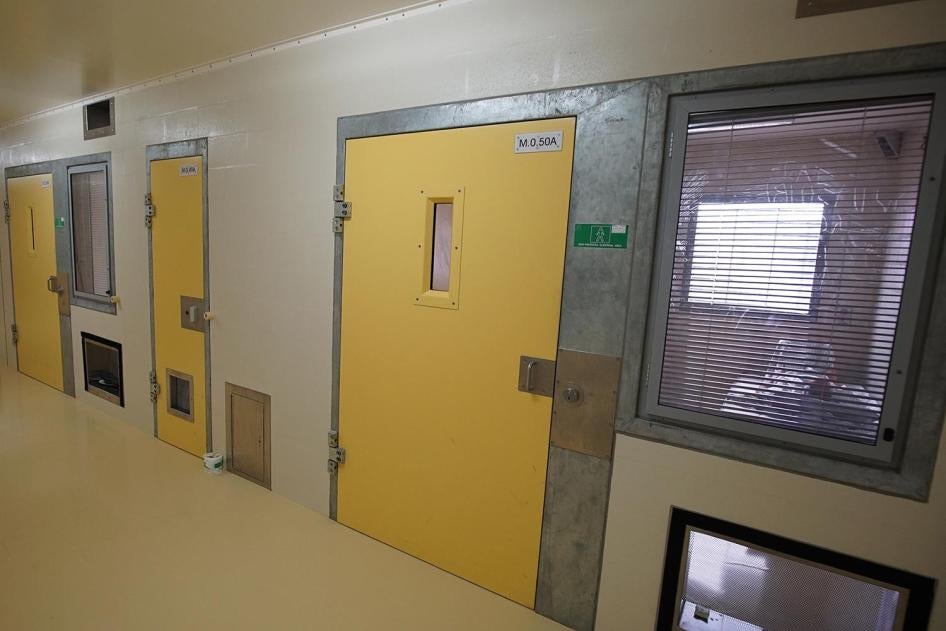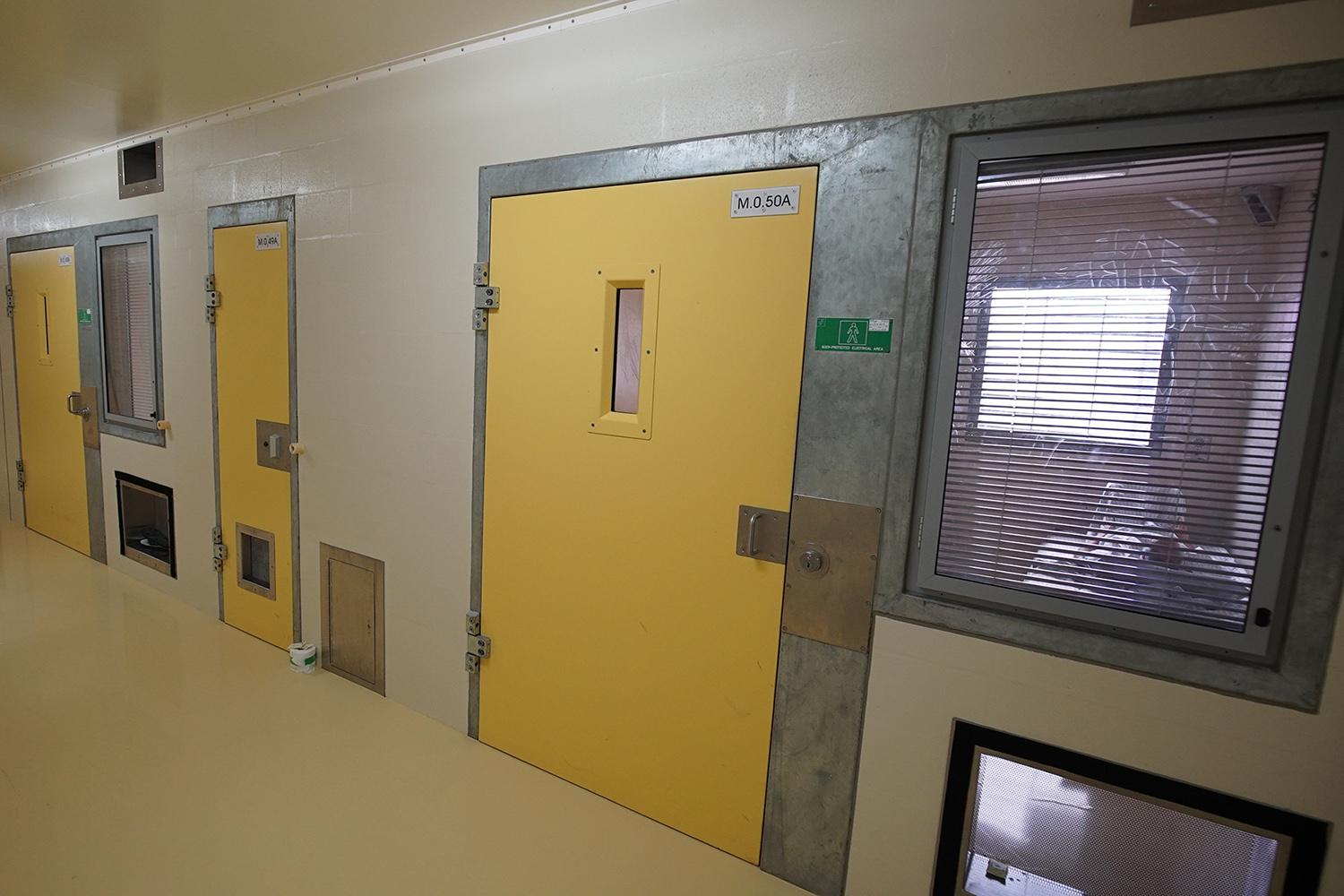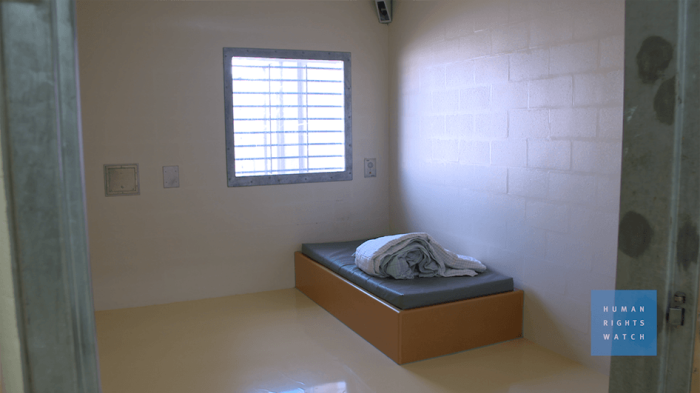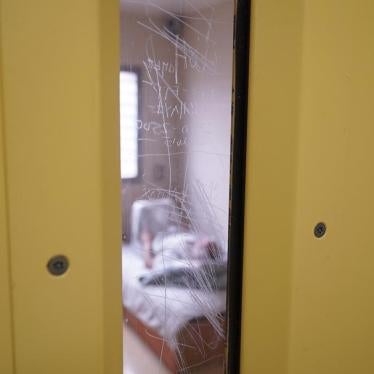I was interviewing prisoners in a male prison in Western Australia, on a sweltering afternoon, when Coen (not his real name) walked in, in his faded green prison uniform. For the first five minutes all he could say was, “It’s too shameful. I can’t tell you.” Coen, an Aboriginal man in his early twenties with a cognitive disability, had only been in prison for a few months but he looked defeated.
With tears rolling down his cheeks he finally told me: “I was going to take a shower, when I saw three male prisoners. One of them ran toward me in his towel, while the other two held me down and made me kiss his penis.” Coen tried to run away, call the guards, but they were too far. “I’m so embarrassed, I haven’t even told my missus.”
Coen’s story is disturbingly common. He is just one of many prisoners with disabilities I interviewed who faced violence in Australian prisons. Prisoners with disabilities, often perceived as “weak” or “easy targets,” are at serious risk of abuse.
Over half of the 41,000 people in Australian prisons have a disability. The lack of comprehensive mental health and social services has created a pathway to prison for many people with disabilities. Aboriginal and Torres Strait Islander people with disabilities are even more likely to end up behind bars.
In researching our new report, we found that once in prison, people with disabilities are unlikely to get the support and services they need. They are often harassed, abused, assaulted, or raped by both fellow prisoners and prison staff. They hesitate to report the abuse because they are afraid of being labelled a “dog” – prison lingo for traitor.
In one prison, we found that a fellow prisoner who was paid to care for a prisoner with a disability was regularly raping him. Trapped in an unequal power dynamic, the prisoner never reported the abuse. It only came to light when officers found blood and feces on the bed-sheets during a random cell search.
Crumbling under the strain of overcrowding, some prisons function at 150 of capacity, with two and sometimes three people in a cell built for one. Sharing cells further puts prisoners with disabilities in danger of physical and sexual violence.
Across the 14 prisons I visited in Western Australia and Queensland, people with disabilities were routinely bullied, including by others who want their medication. If they dare to resist, they are beaten up.
In Coen’s case, when guards found out about the incident, they locked him up in a detention unit, to await transfer to another prison. For two long days, he was treated not as the victim but as the perpetrator, isolated in a sterile cell typically used to punish prisoners, and given access to a caged yard for only a couple of hours a day. To add insult to injury, the guards taunted him, joking that his attackers were sleeping in neighbouring cells. “All night I could not sleep…. I could just hear the guards giggling outside,” he said. After the incident, he was diagnosed with depression but received little mental health support beyond medication.
Women’s prisons are equally bad. A woman with a mental health condition told me: “I got hit on sexually by officers quite regularly…. They catch you when you’re working by yourself and touch your boobs, bum, or put a hand around your waist. Or they make stupid comments like, ‘You’ve been here a while, you must be horny.’”
Many of the women with disabilities I interviewed, particularly Aboriginal and Torres Strait Islander women, had experienced family and sexual violence multiple times. In fact, research shows that more than 70 percent of women with disabilities in Australia have experienced sexual violence. The rate for women with intellectual disabilities is even higher -- 90 percent have experienced sexual abuse, more than two thirds of them before they reached 18. When they face abuse in prison, particularly from staff, it perpetuates this cycle of violence.
Without independent oversight, the abuse goes unchecked. All the more reason why State and Territory governments, particularly in Queensland, South Australia, Victoria, and the Northern Territory, should set up independent and regular monitoring of prisons, with particular attention to abuse of prisoners with disabilities. State governments need to consult people with disabilities, including Aboriginal and Torres Strait Islander people, and their representative organizations to learn how to strengthen support services within prisons.
When I asked Coen how he is treated at the current prison he said that he continues to be bullied and harassed on a daily basis. He told me: “I’m used to it now. It happens all the time.”











